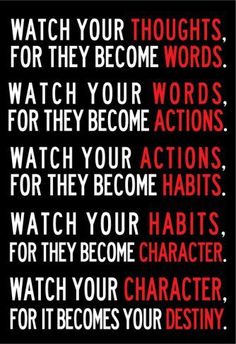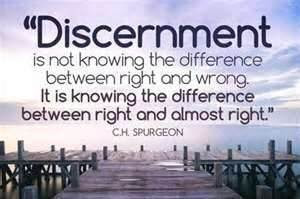Jeremiah 17:10. God Rewards Conduct.
Read it HERE. (NKJV, NIV) Hear it read here: NKJV or NIV.
Introduction. Jeremiah chapter 17 is God reminding His people about their own covenant promises and how they have broken both the Law of Moses (vs. 1-4) and the accepted guidelines of blessings and curses (vs. 5-8). He urges His people to avoid trusting their own internal compasses since they do not even understand right and wrong in their own hearts, let alone knowing how to cure or fix it if it is in fact proved to be wrong (vs. 9). Through his prophet, God then urges His special people to trust His Divine judgment. And He sets forth what is clearly a leadership principle for returning to wise leadership of themselves and their nation in verse 10.
Vs. 10 "I the Lord search the heart, I try the reins, even to give every man according to his ways, and according to the fruit of his doings." - NKJV
Vs. 10 “I the Lord search the heart and examine the mind,to reward each person according to their conduct, according to what their deeds deserve.” - NIV
Part 3 of 6: God Rewards Conduct
Third, in this passage God says there is a reward given to each man (or woman) for how he (or she) conducts himself (or herself). The implication is that it refers to not just one "act", but to the accumulation of "acts" or a person's "way." Life choices are made up of many smaller choices that accumulate into a path or direction in which one's life progresses. Our choice reflect the way in which we navigate toward a particular destination. Our destination is the reward for making our way there. Satisfaction arises out of successfully navigating "there", wherever that may be. Each person's perception creates choices, each choice is a decision, each decision is a step, and every step leads somewhere. The patterns that shed light on both our initial perceptions and our final steps are the habits we have cultivated along the way. In ancient times, habits were the clothes one wore to indicate rank and status. Sometimes our habits do not reflect the real perceptions and decisions we think are making. They reveal something wholly different. Think about how each of the seven churches in Revelation were surprised by their commendations or concerns. They thought they were rich, but they were poor. They thought they were weak, but they were strong. And so on. Be more discerning and aware in your leadership practices here on earth. Let's look deeper into these leadership aspects: Vision & Decision-Making.

 The real issue is that our way is determined by the logic processes in seeing and making choices that are in front of us at any given moment. This is our leadership VISION. If we see ourselves or our situations as strong or weak, we can choose very different actions based on the same set of facts. One clear Biblical example is of Moses sending twelve spies into Canaan. Two concluded they could attack and win, but the majority of ten concluded that they were doomed to failure being like "grasshoppers in their enemy's eyes" and in their own eyes as well.
The real issue is that our way is determined by the logic processes in seeing and making choices that are in front of us at any given moment. This is our leadership VISION. If we see ourselves or our situations as strong or weak, we can choose very different actions based on the same set of facts. One clear Biblical example is of Moses sending twelve spies into Canaan. Two concluded they could attack and win, but the majority of ten concluded that they were doomed to failure being like "grasshoppers in their enemy's eyes" and in their own eyes as well.

If we as leaders perceive the situation or the team to be a certain way, we will behave and act on that perception, right or wrong. But the end result may not be where we want to be; it may lead in circles or keep us away from the "Promised Land". Wisdom to see the end from the beginning is needed because the reward is determined by our actions. Every step matters, but only to the extent that it leads to the right place. Where do your steps/choices lead you? Will they bring you the reward you want? That is true leadership insight.
ASK YOURSELF:
Am I in the right place doing the right thing for the right reward? This is the basis of your vision forward: goals. Where is the destination you are heading in your own career or leadership role? What about your life role? Are your goals often at odds with each other? Do you have conflicting destinations that make your decisions criss-cross each other and not make any progress forward? These are all analytical points that help leaders decide whether they can and should lead their people, teams, ministry, or company in a particular direction.
Moses noted that he needed help to properly lead God's people out of Egypt, and God gave him his natural brother Aaron as well as his older sister Miriam. It was not God's initial plan or His perfect plan; he chose Moses alone and wanted him to trust and speak God's own words implicitly. Yet God allowed for Moses's skewed perception of both himself and his leadership abilities as a spokesperson for God. Though we are flawed humans, individuals and leaders, God's perfect path is always best; yet His perfect leadership means that He will sometimes make allowances for our weaknesses. It will take us longer to get to our destination, it may be more complicated than God intended, and it may be more painful than we thought. The practice of becoming aware of our own perceptions, visions, and biases about ourselves and others only helps us function more in line with God's path for us as leaders. It open up our eyes so that we do not color our choices against our own goals and end up in the wrong place. Good leaders lead the way (vision). Great leaders get everyone to the right destination (reward).
Am I at war with myself and/or my team in a particular area? This speaks to our internal and external logic of decision-making. We all make decisions, but being intentional about the impact of our small decisions means being discerning. Taking a larger view of each decision gives meaning and context to each choice -- whether it leads to the right place in the end. It is the deep understanding that satisfaction comes from wanting to be in the right place at the right time for the right purpose and that one's choices have been successful in getting one "there". Unfortunately, often leaders derail themselves. Despite great leadership skills and talent, often specific decisions are at odds with multiple goals, expressed destinations, or choices and decisions that are moving in multiple tracks and can never be reconciled with each other. This dichotomy pulls leaders into more and more stress to do even the most simplest of tasks until many a good leader derails himself and his career only to start all over again somewhere (or with someone) new. Ministry leaders can find themselves church-hopping, executives can find themselves company-hopping, partners can find themselves partner-hopping, and leaders can find themselves frustratingly trying to lead others, including their own families, by force and effort rather than by consent and synergy.
Examining your logical processes for seeing choices in front of you and for coming to a solid decision that can be acted upon is a key skill that God Himself encourages. After all, isn't this what God puts forth with the Gospel? He provides a context for salvation, outlines the choice of salvation, tells the consequences of each choice for or against salvation, and indicates the conditions and responsibility for each person to choose during a particular time limit (eg, while it is "day", in the time of grace, while we are alive on earth, etc.). There is an earned reward at the end of each choice, a destination: heaven or hell. We get what we choose in its final conclusion because that is what we wanted, regardless of what we thought we were choosing along the way. Likewise, each of our own leadership choices has a particular destination built into it -- its "reward", good or bad for you and those you are leading.
By looking for areas of frustration or conflict, it is an opportunity for you as a leader to look for your own patterns of logic and decision-making processes and to understand how you might be sabotaging your own ends or undoing your own leadership rewards into attaining something you don't want in the first place.
Practice these two questions each day for a week and see if you discover anything new. As a leader, you might find that what you thought you were working hard for is actually being undermined by your own habits or thought-processes. If not, it is still a good exercise to check in with periodically anyway to stay on-track. If you have found a pattern of inconsistency, you now know an area upon which you can directly impact your own success and the success of those you lead. You can adjust what needs to be adjusted for more impactful decision-making by letting loose from some personal assumptions and established habits to redirect your efforts. Well done!
Next article 9/26/17: Part 4 of 6, Jeremiah 17:10
(Articles 5 & 6 are for members-only. You can join with a tax-deductible Bronze donation membership of $50/yr to view all Christian content in our site.)




